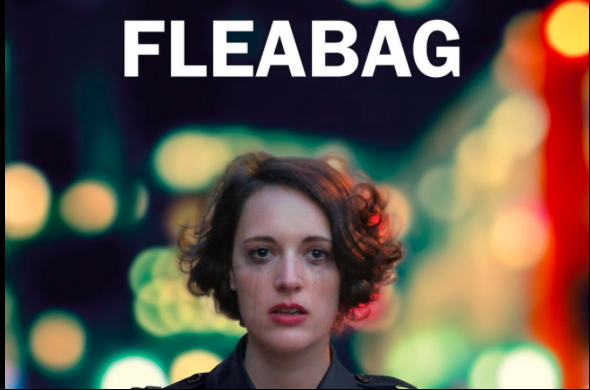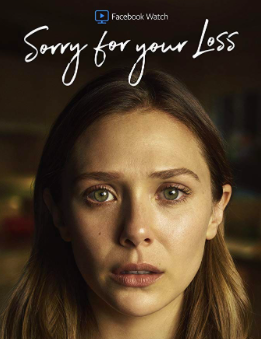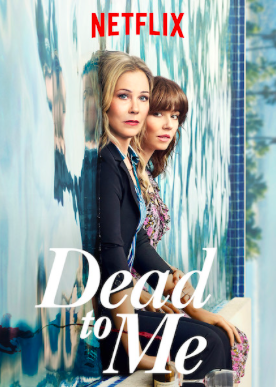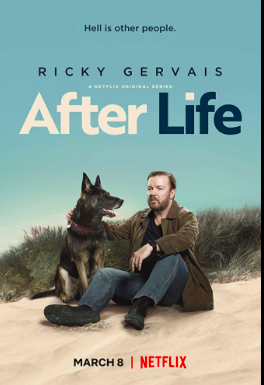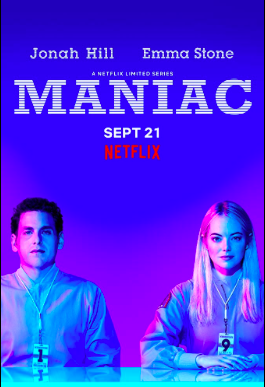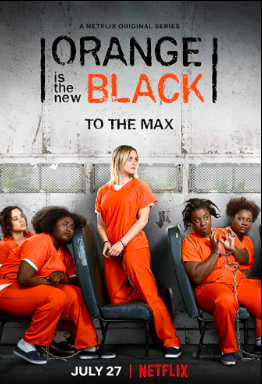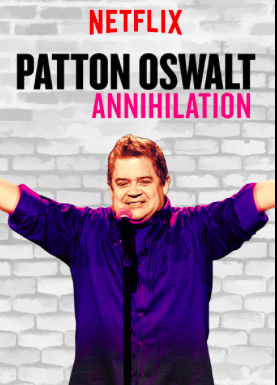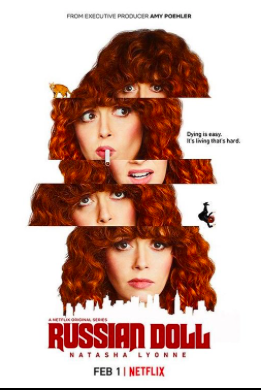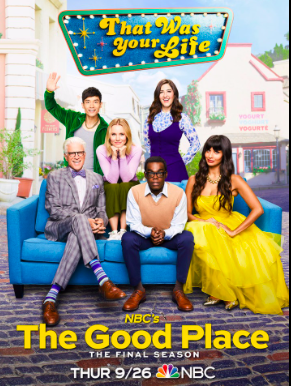For such a long time, we’ve seen grief depicted as the same tired equation of sadness + desperation + deep soul searching + letting go = happiness onscreen. Finally, grief on the small screen is starting to show more facets of real grief. Here are some of the shows that I watched the year after my dad died.
Fleabag (2016-2019, Amazon Prime) is a show about grief, specifically from mother loss and friend loss. Titular character Fleabag shows us all of it: her guilt, lust, rage, regret, and dysfunction. It is a show about the way families fall apart and come together in the face of grief. It is a show about where we seek and find support, and what happens when our sources for support break us even more. It is a show about confronting past mistakes, letting go of things that can’t be changed, and carving a new life from the destruction of loss. Most importantly (to me), it is a very funny show that shows all the ways (light, dark, silly, grossly inappropriate or otherwise) humor can help propel us (and sometimes hold us back) in our grief.
Sorry For Your Loss (2018—, Facebook Watch) is a show about grief, specifically from spouse/ sibling/ in-law loss. We see grief through so many lenses: from widow Leigh, who is navigating a world in which she’s no longer in the lifelong partnership she’d imagined; brother Danny, who devotes a lot of energy to piecing together the mystery of Why Did This Happen?; mother-in-law Amy, whose own grief for her son-in-law often juts against her efforts to keep her daughters afloat in their grief; and sister-in-law Jules, who is grappling with new sobriety on top of her grief. This is a show about barely hanging on but also doing the best possible. It is a show about pushing against the people you love most and loving people both fiercely and imperfectly. It is another show that goes beyond the typical sad-sad-sad trope to also show humor, anger, jealousy, immaturity, denial and hope.
Dead To Me (2019—, Netflix) is a show about grief, specifically from spouse loss and pregnancy loss. It is also a murder mystery and a story of friendship and betrayal. What I love about this show is that it focuses a lot on anger, sometimes uncontrolled. It also shows the challenges of parenting while grieving as well as being a child while grieving. There are twists and turns in this show that can sometimes make it feel melodramatic and even silly, but at its core it does a good job of showing some of the messier, uglier sides of grief — the ones that don’t always receive as much air time.
After Life (2019—, Netflix) is a show about grief, specifically from spouse loss. It’s one of those shows that I gravitated to early on —Anger! Yay! I love to see anger because I don’t think it’s shown nearly enough — but it turned me off when everything was oh-so-neatly wrapped up and main character Tony decided that, you know what? I think I’ll just stop being angry and start being kind and everything will be great. Kind of like most of the shows and movies that have ever been done about grief, ever. No thank you from me.
Maniac (2018, Netflix) is a miniseries about grief, specifically from sibling loss and loss of self-identity in the face of mental illness. It a show about an experimental pharmaceutical trial that draws in participants who feel lost, broken, and helpless. One of the participants, Owen, is struggling with a disputed schizophrenia diagnosis. Another participant, Annie, is broken in the aftermath of her sister’s death. Both come to the drug trial hoping for a solution to their problems and instead encounter a lot of other problems along the way. Maniac is a kooky, darkly funny show with a heavy sci-fi bent. It really captures the persistent pervasiveness of grief and although sci-fi isn’t normally my genre of choice, I happily followed the show through all its crazy adventures and revelations.
Orange is the New Black (2013-2019, Netflix) is a show about incarceration and it also a show about grief, specifically loss of life, loss of freedom, loss of identity, and loss of justice. Over the seasons there have been several inmate deaths that bring grief directly to the surface, but there have also been so many other losses along the way. Dignity, independence, the ability to make choices for oneself: so many of these have been stripped away for those imprisoned. The show also does as excellent job of showing the grief that’s still carried in life after prison — things don’t magically become better for those who get out. Often, those same losses they experienced in jail stick with them as they tackle life on the outside. The final season also shows the loss and grief that accompanies families during the traumatic process of deportation.
Patton Oswalt’s Annihilation special (2018, Netflix) is about grief, specifically spouse loss. It is a comedy show about politics and parenting, and it is also a show about life after the sudden and unexpected death of his wife. Patton shows his humor, rage, hope, joy, and resilience in a show that is funny, moving, and real.
Russian Doll (2019—, Netflix) is a show about grief, specifically mother loss and the loss of one’s own life cut off too soon. Nadia dies at the end of the evening of her 36th birthday — and then wakes up alive the next day, attends the same party again, and dies again, this time in a new way. This cycle repeats over and over as Nadia tries to gather information to explain what’s going on. It is a show about buried trauma, forgiveness, guilt, and finding meaning in life.
The Good Place (2016—2020, NBC) is a show that is less about grief and more about life after death and the meaning of life. What does it mean to be a good person? What does it look like? What is the point of kindness? What is the value in doing things not to be rewarded for them, but simply because they are the right things to do? The Good Place is a funny show that takes a light tone to explore deeper issues. It explores life, death, life after death, and the ultimate questions: What does it all mean, and what is the point?
In grief and with love,
KrissyMick
Photo Credits, All: imdb.com


